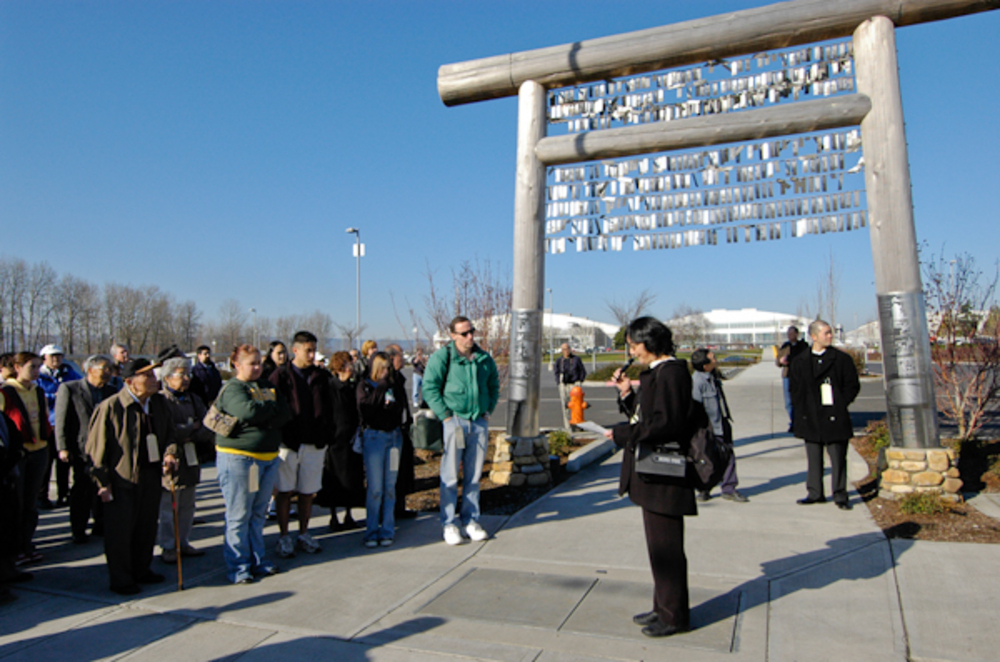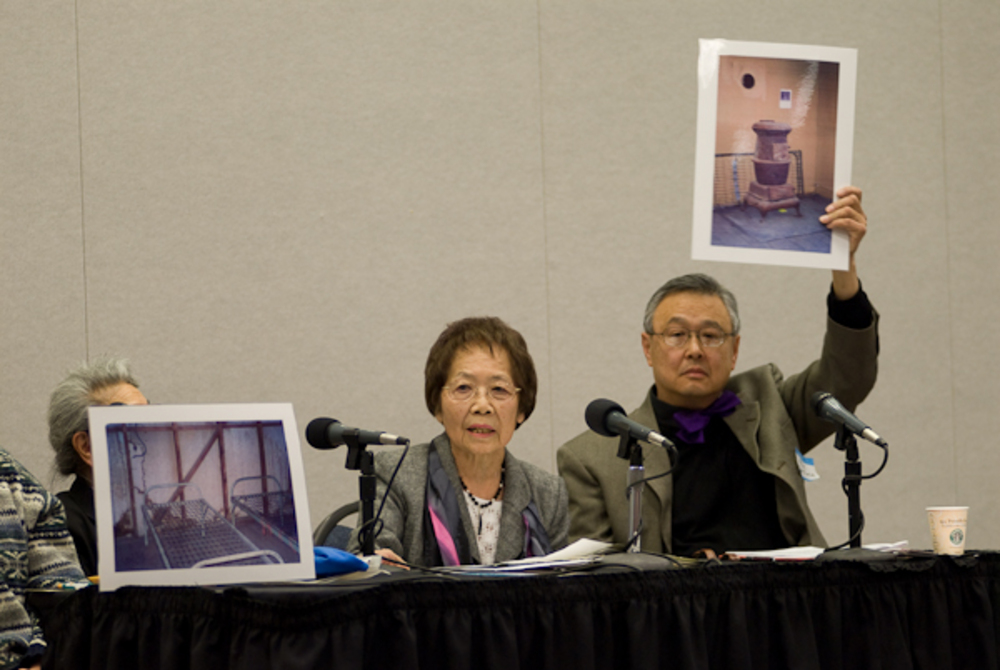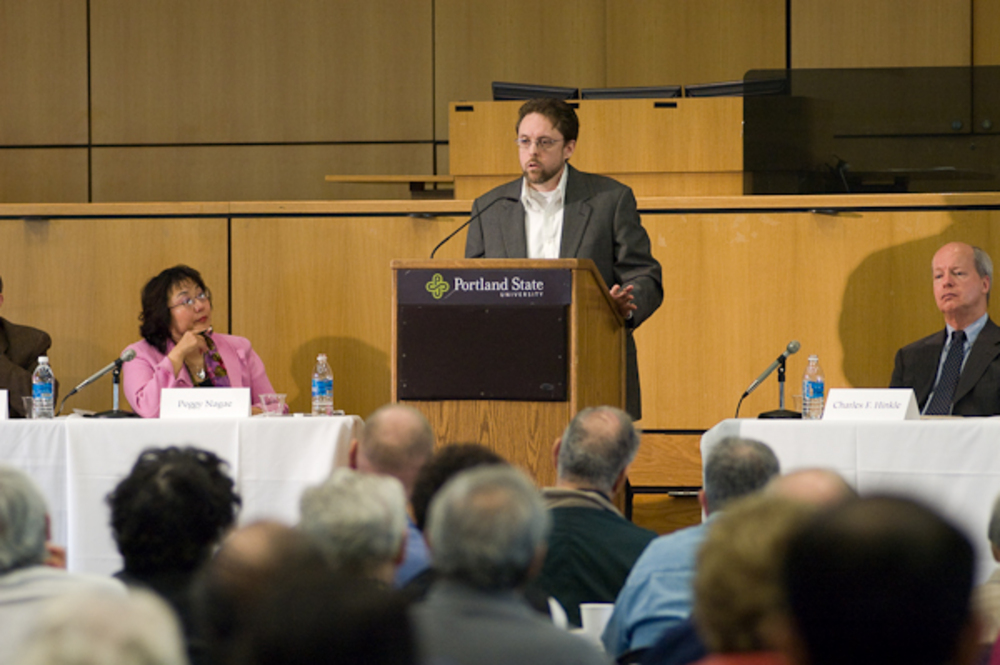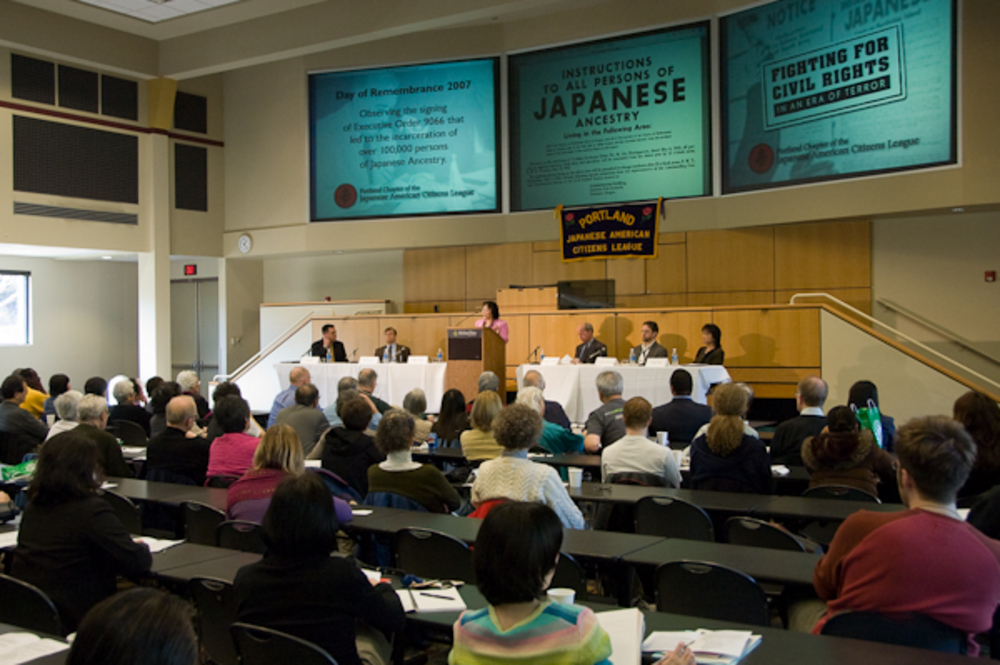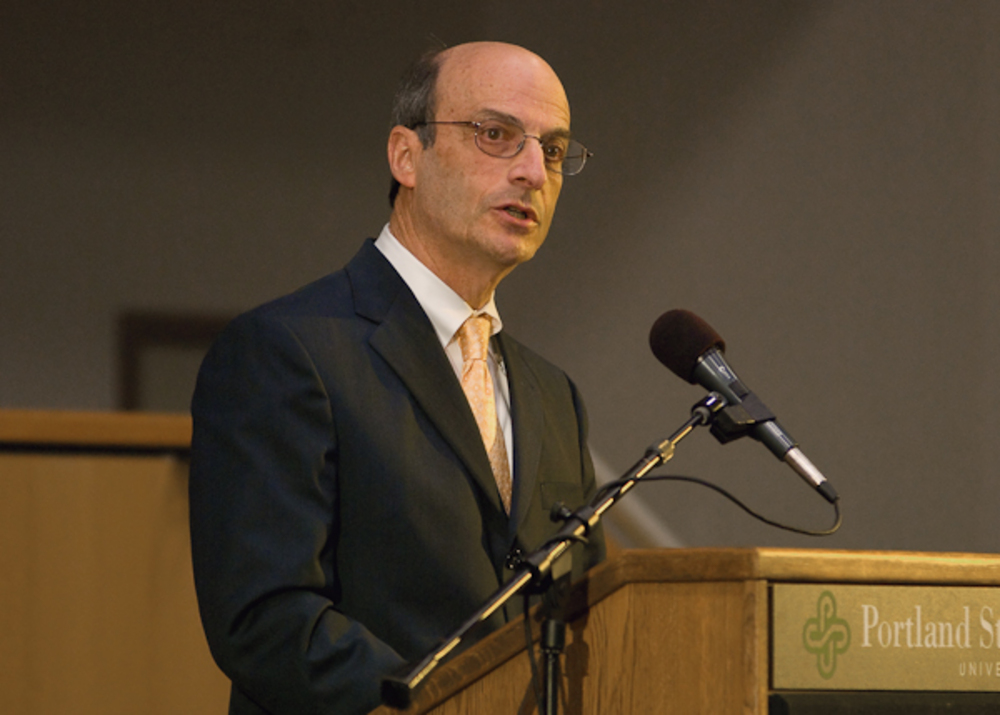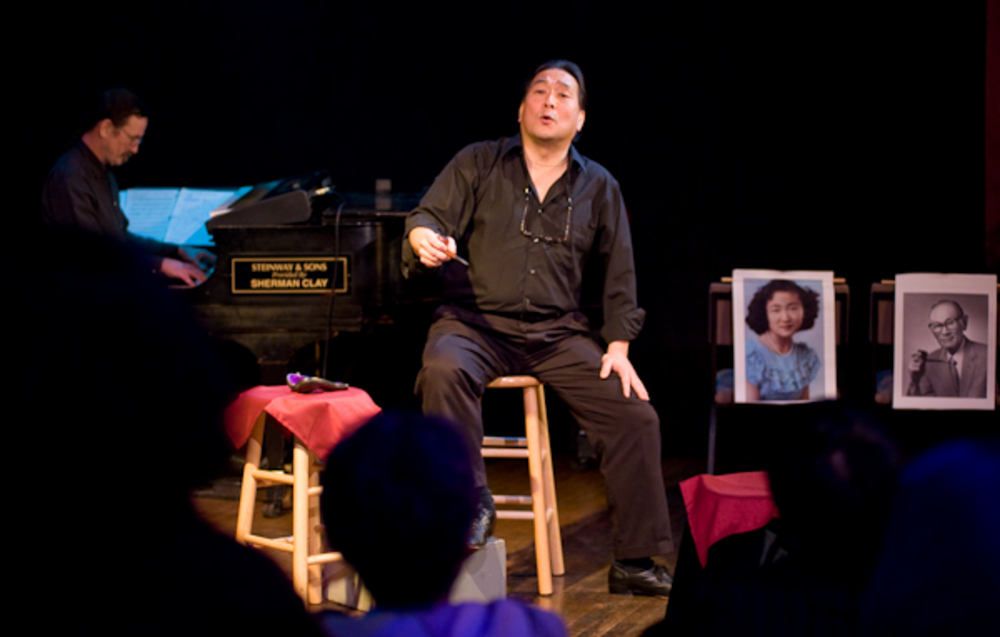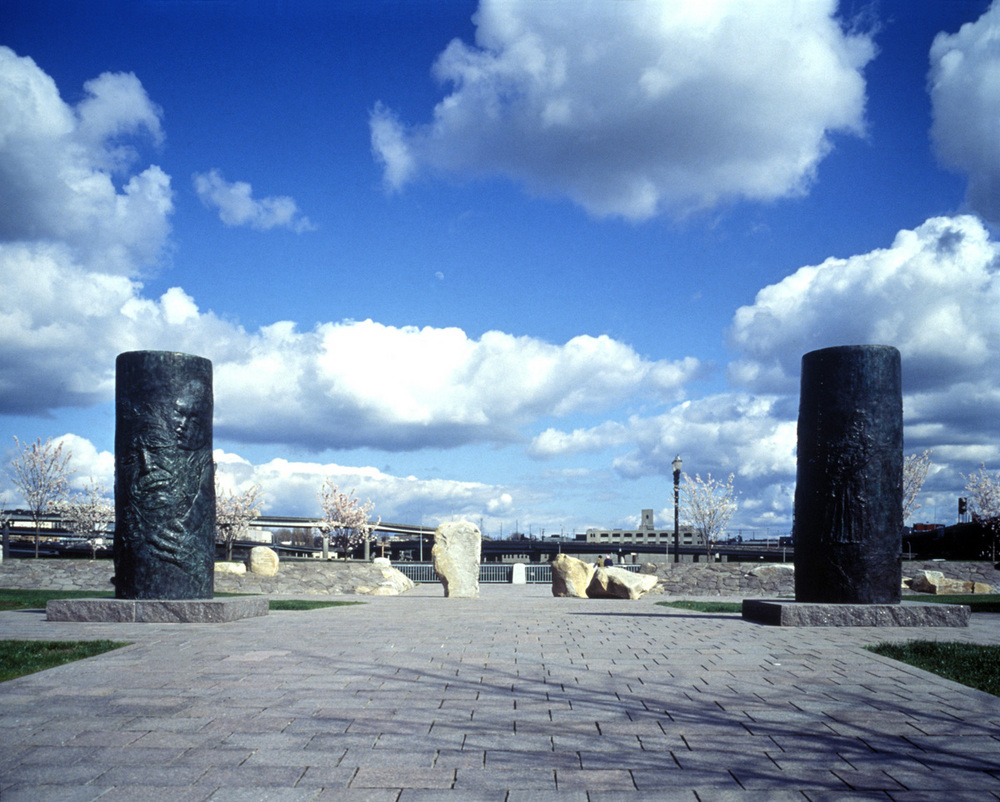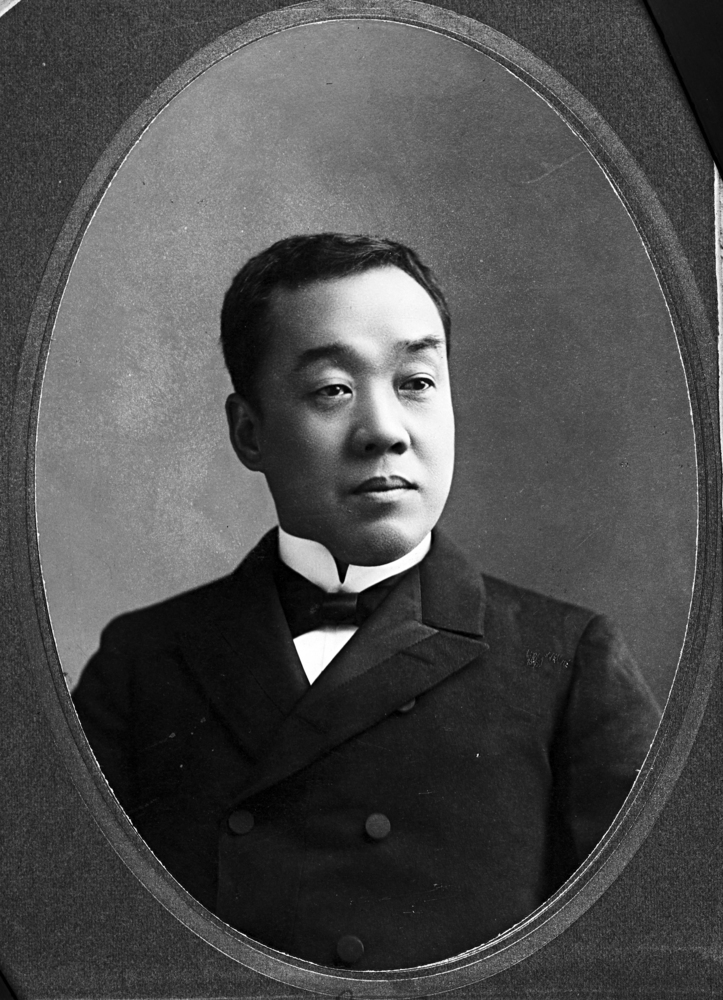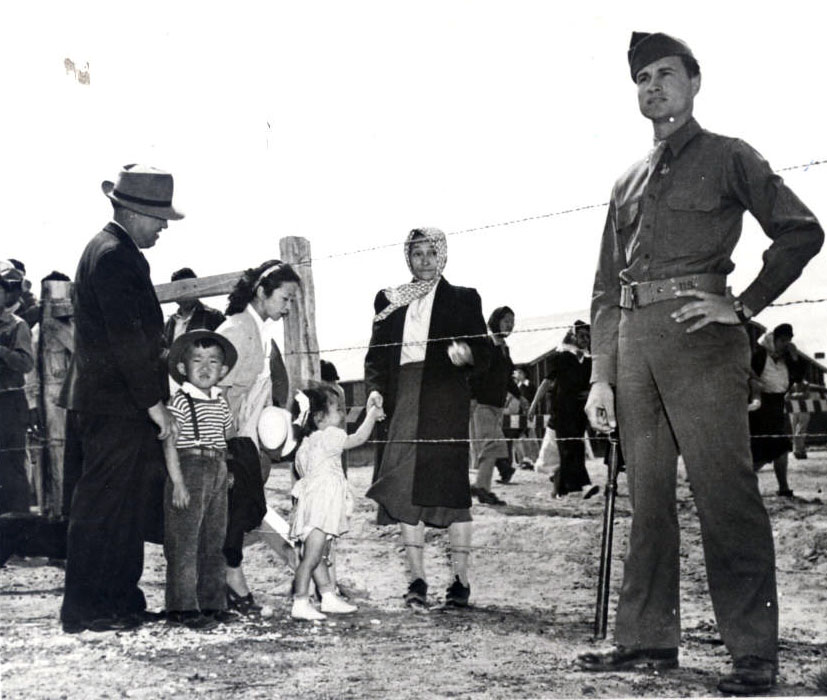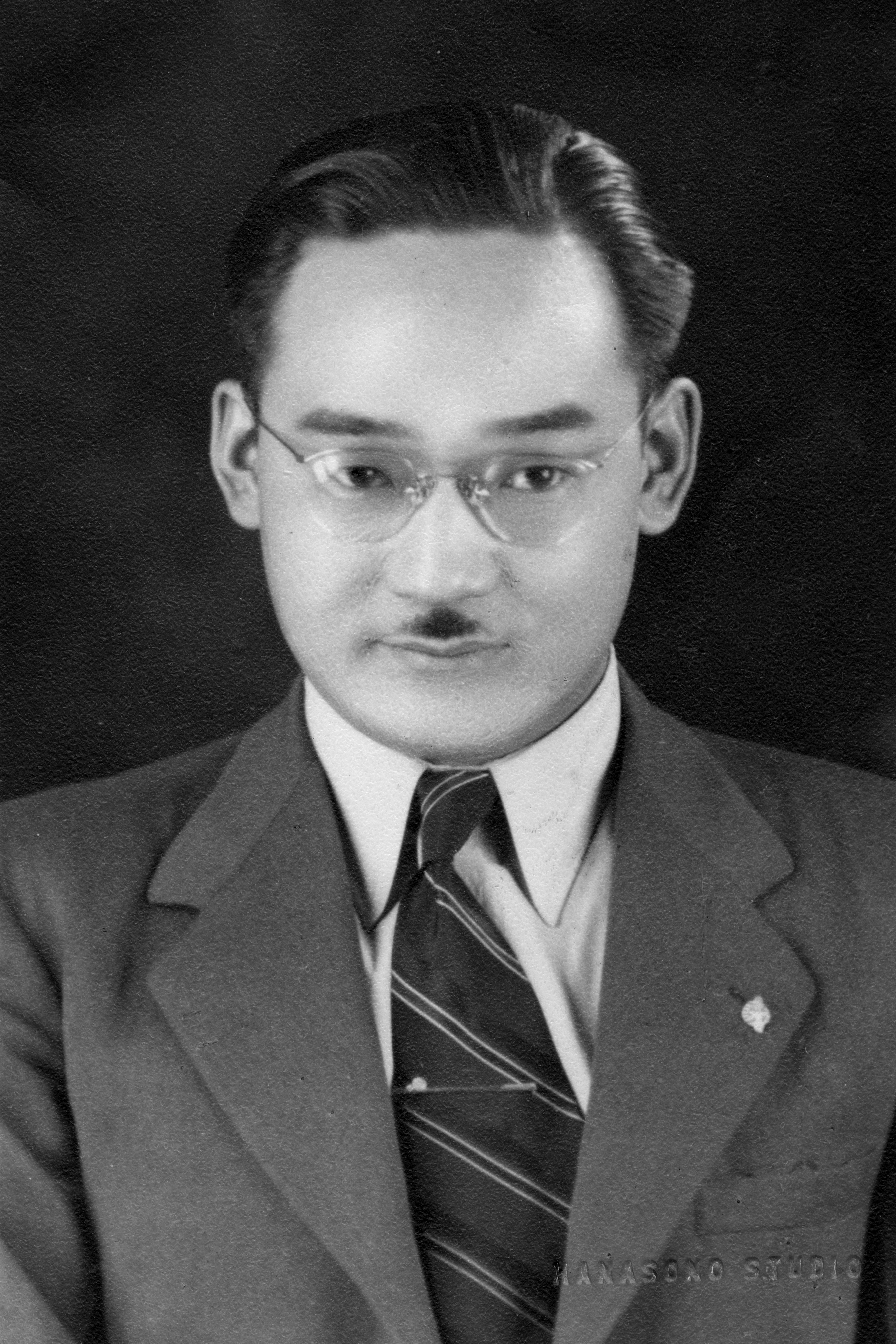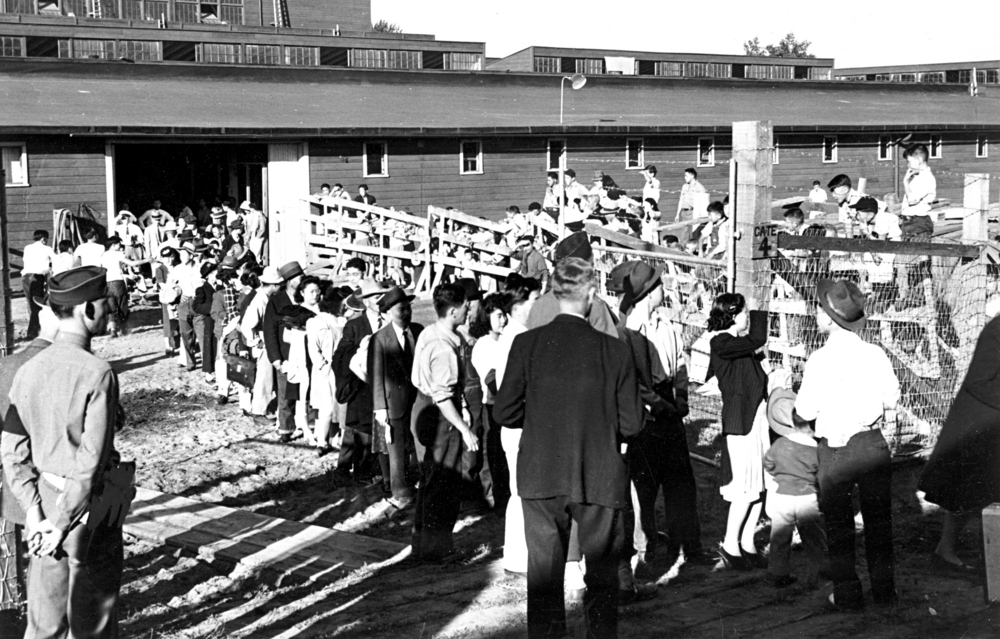The Day of Remembrance (DOR) was created as an annual observance of Executive Order #9066, signed by Franklin D. Roosevelt on February 19, 1942, forcing all persons of Japanese ancestry on the West Coast to leave their homes for confinement in inland detention camps. During the period from 1942 to 1946, some 77,000 American-born citizens (Nisei) and 45,000 Japanese nationals, most of whom were permanent U.S. residents (Issei), were deprived of liberty and property without criminal charges or trial.
The first DOR was held on November 25, 1978, at the Puyallup Fairgrounds in Washington, one of twenty temporary government detention centers during the early months of World War II. An estimated 3,200 people attended, despite some opposition from the local American Legion.
The next year, on February 17, 1979, Oregon held its first DOR at the former Pacific International Livestock Exposition, where, in 1942, animal stables had been turned into living quarters for more than 3,500 Japanese Americans, the site of the Portland Assembly Center.
Thirty-seven years after the signing of the executive order and forty-six years after President Ronald Reagan signed the Civil Liberties Act of 1988 and apologized for the government's "mistake," some 1,000 Oregonians came together to receive this public recognition of a forgotten injustice. Mayor Neil Goldschmidt declared this a Day of Remembrance in Oregon; speakers included Oregonian Minoru Yasui, who had openly challenged the constitutionality of the government's curfew order. Exhibits of artwork and other objects handcrafted in the camps—bits of obsidian, walking sticks made of limbs of sagebrush, greasewood furniture—were displayed.
Portland and Eugene continue to hold annual DORs, broadening their advocacy for civil rights by speaking out for others, including Arab Americans and Native Americans. Hood River, which in 1945 achieved notoriety as a hotbed of anti-Japanese sentiment, also held a DOR in 2007, planned and organized by Joan Yasui Emerson, Min Yasui's niece. In 2008, Willamette University, in Salem, featured Oregon poet laureate Lawson Inada at its DOR. From 1978 to the present, the Day of Remembrance has become a forum for Oregonians—and citizens in many West Coast cities—to remember the past and renew their commitment for citizens' rights.
-
![Valerie Otani speaks at the light rail Expo Center station in Portland during the opening of the 2005 Day of Remembrance program.]()
Day of Remembrance, 2005.
Valerie Otani speaks at the light rail Expo Center station in Portland during the opening of the 2005 Day of Remembrance program. Copyright 2005 Rich Iwasaki
-
![May Namba (center) speaks while Larry Matsuda displays photograph at the 2006 Day of Remembrance program at the Portland Metropolitan Exposition Center.]()
Day of Remembrance, 2006.
May Namba (center) speaks while Larry Matsuda displays photograph at the 2006 Day of Remembrance program at the Portland Metropolitan Exposition Center. Copyright 2006 Rich Iwasaki
-
![Brandon Mayfield speaks about his experience as a wrongly jailed “material witness” in the Madrid train bombings at the 2007 Day of Remembrance program at Portland State University.]()
Day of Remembrance, 2007.
Brandon Mayfield speaks about his experience as a wrongly jailed “material witness” in the Madrid train bombings at the 2007 Day of Remembrance program at Portland State University. Copyright 2007 Rich Iwasaki
-
![Peggy Nagae speaking as one of five panelists during 2007 Day of Remembrance event at Portland State University.]()
Day of Remembrance, 2007.
Peggy Nagae speaking as one of five panelists during 2007 Day of Remembrance event at Portland State University. Copyright 2007 Rich Iwasaki
-
![Civil rights attorney Elden Rosenthal speaks at the 2008 Day of Remembrance event at Portland State University.]()
Day of Remembrance, 2008.
Civil rights attorney Elden Rosenthal speaks at the 2008 Day of Remembrance event at Portland State University. Copyright 2008 Rich Iwasaki
-
![Pianist Mike Van Liew accompanies storyteller Alton Chung as Chung relates his program Kodomo No Tame Ni (For the sake of the children), a 2009 Day of Remembrance event at Hipbone Studio in Portland.]()
Day of Remembrance, 2009.
Pianist Mike Van Liew accompanies storyteller Alton Chung as Chung relates his program Kodomo No Tame Ni (For the sake of the children), a 2009 Day of Remembrance event at Hipbone Studio in Portland. Copyright 2007 Rich Iwasaki
Related Entries
-
![Japanese American Historical Plaza (Portland)]()
Japanese American Historical Plaza (Portland)
Using thirteen engraved stones of basalt and granite, the Japanese Amer…
-
![Japanese Americans in Oregon]()
Japanese Americans in Oregon
Immigrants from the West Resting in the shade of the Gresham Pioneer C…
-
![Japanese American Wartime Incarceration in Oregon]()
Japanese American Wartime Incarceration in Oregon
Masuo Yasui, together with many members of Hood River’s Japanese commun…
-
![Minoru Yasui (1916–1986)]()
Minoru Yasui (1916–1986)
Minoru Yasui was born in Hood River on October 16, 1916, the third son …
-
![Portland Temporary Detention Center (Portland Assembly Center)]()
Portland Temporary Detention Center (Portland Assembly Center)
From May 2 to September 10, 1942, an eleven-acre building on the south …
Related Historical Records
Map This on the Oregon History WayFinder
The Oregon History Wayfinder is an interactive map that identifies significant places, people, and events in Oregon history.
Further Reading
Azuma, Eiichiro. "A History of Oregon's Issei, 1880-1952." Oregon Historical Quarterly 94, 1993-4: 315-67.
Tamura, Linda. The Hood River Issei: An Oral History of Japanese Settlers in Oregon' Hood River Valley. Champaign: University of Illinois Press, 1993.

